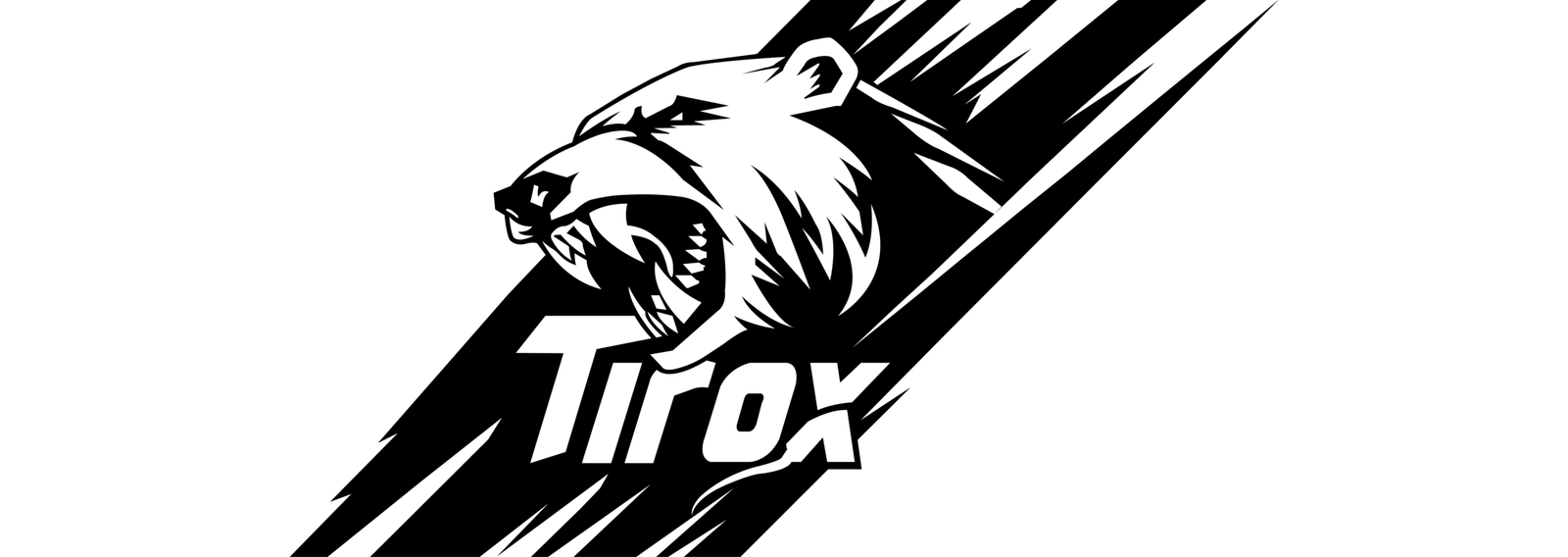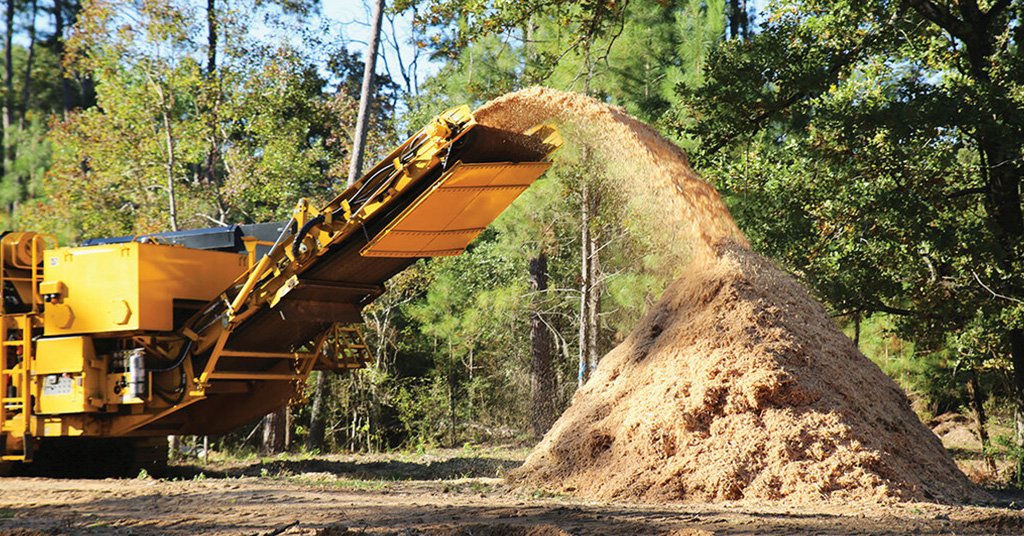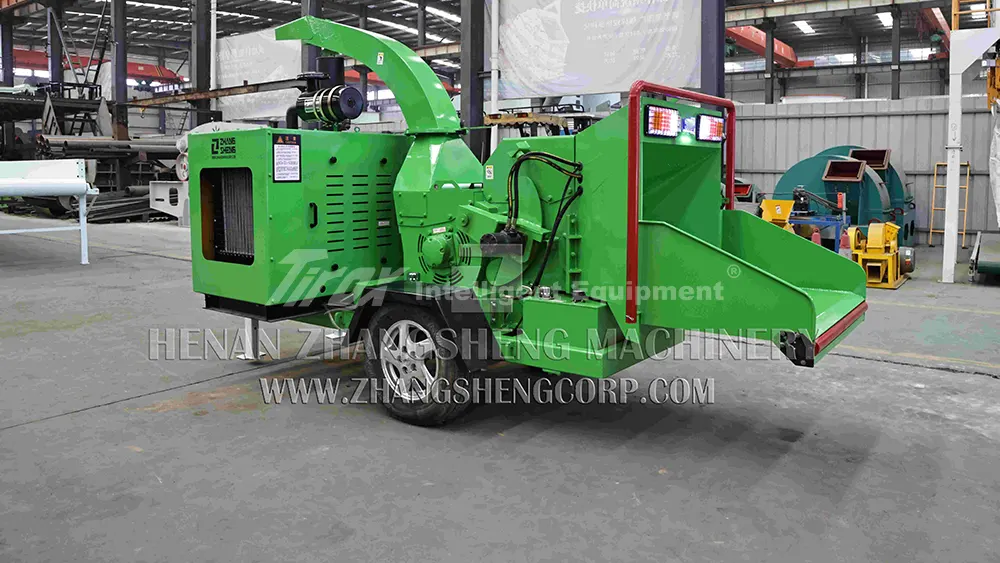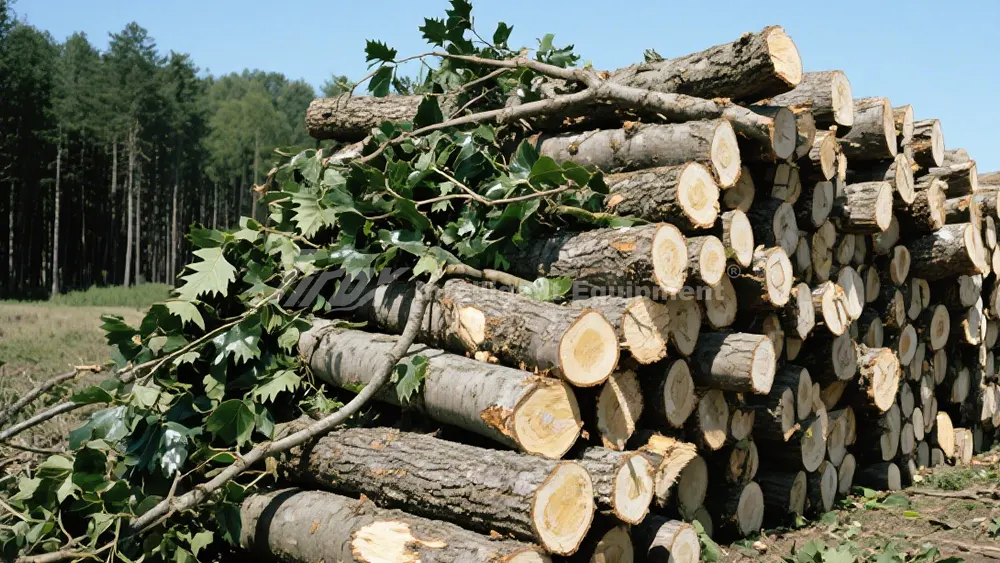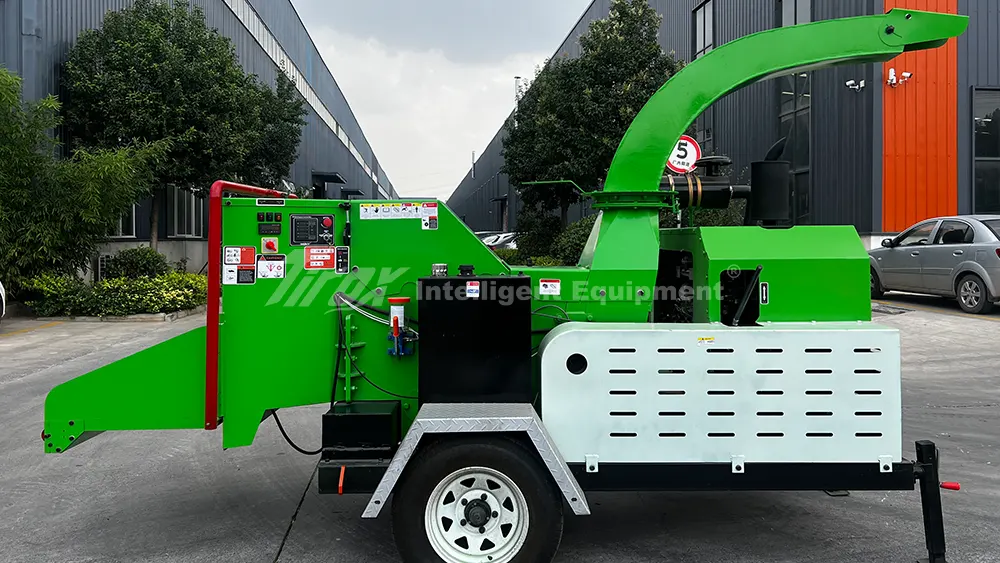You’re looking at a huge pile of branches and yard waste. You want to turn it into something useful for your garden, like fertilizer. The thought of a wood chipper turning this problem into a solution is very appealing.
No, a wood chipper does not directly make fertilizer. Instead, it produces wood chips, which are an excellent carbon-rich ingredient for making compost. Compost is a fantastic organic fertilizer that enriches the soil. 713[20]()
This is a really important distinction, and it’s a topic I discuss often with my customers. As a manufacturer with 22 years of experience, I know that understanding what a machine actually does is the key to getting the most value from it. A wood chipper is the vital first step in turning your wood waste into “black gold” for your soil. Let me walk you through how it works.
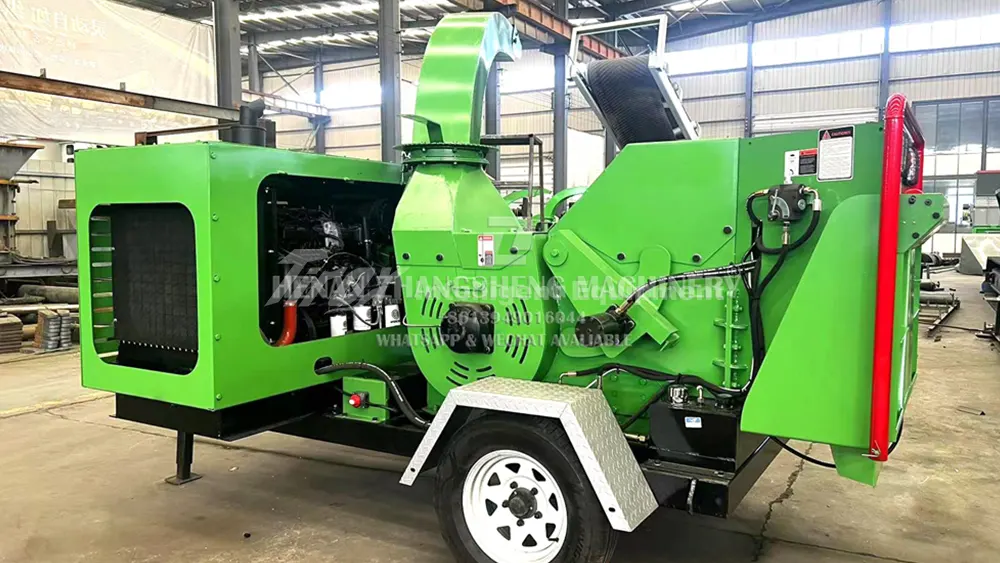
Can you use a wood chipper to make compost?
You have a compost pile, but the big branches you throw on top just seem to sit there for years without breaking down. It’s a slow, frustrating process that takes up valuable space.
Yes, a wood chipper is an essential tool for making high-quality compost efficiently. By shredding branches and woody material into small chips, you dramatically increase the surface area, allowing beneficial microbes to break down the material much faster. 713[20]()
Why Chipping is the Secret to Fast Composting
Over my career, I’ve seen customers in 87 countries use our machines to improve their operations, and composting is a big one. The science is simple. A healthy compost pile needs a good balance of carbon and nitrogen materials. Think of it as a diet for microorganisms.
- Carbon (“Browns”): This is the energy food. Wood chips are one of the best carbon sources you can get. 7 Other browns include dry leaves, sawdust, and cardboard.
- Nitrogen (“Greens”): This provides the protein for the microbes to grow and multiply. Greens include fresh grass clippings, kitchen scraps, and garden trimmings.
A large, unchipped branch is like a giant loaf of bread that microbes can only nibble at from the outside. When you run that branch through a TIROX Wood Chipper, you turn it into thousands of tiny breadcrumbs. Suddenly, there’s a massive amount of surface area for those microbes to feast on. This speeds up the decomposition process from years to just a few months. For more details on the science, you can find great information on sites like Wikipedia’s page on composting.
The finished chips can be used for compost, biomass fuel, or construction boards. 812 This versatility is why our machines are used in so many different industries.
What can you use a wood chipper for?
Many people think a wood chipper’s only job is to get rid of branches after a storm. This narrow view means you could be throwing away a valuable resource and missing the full potential of this powerful machine.
Beyond just waste reduction, a wood chipper turns wood debris into a variety of useful products. The primary uses are creating landscape mulch, ingredients for compost, biomass fuel for energy, and even materials for erosion control or animal bedding. 7913[20]()
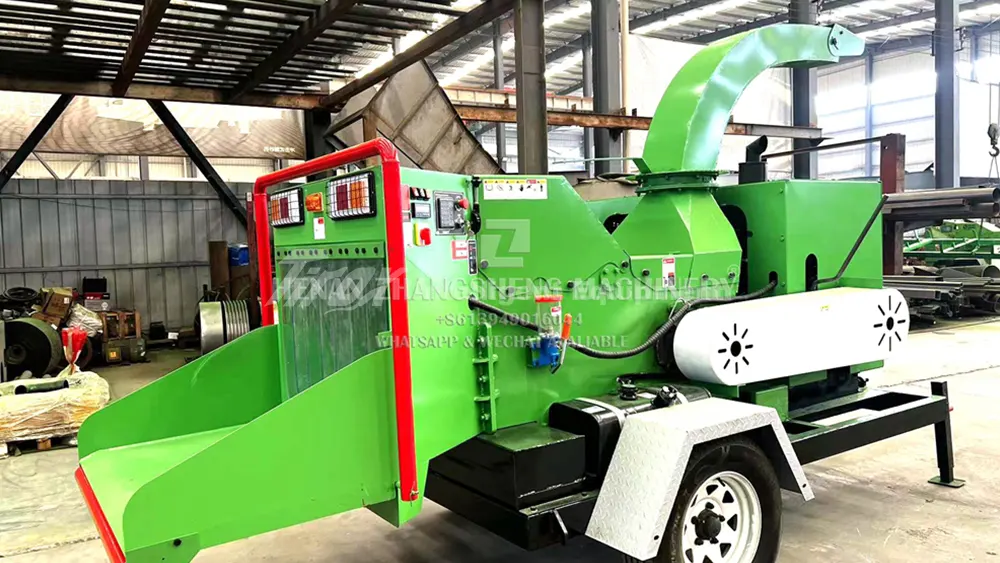
More Than Just Disposal
A wood chipper is fundamentally a machine for transformation. It takes low-value, bulky waste and turns it into a uniform, manageable, and often valuable product. 9 I’ve seen our B2B customers, from large farms to forestry companies, build entire business models around the output of our chippers. Here are some of the most common uses our customers have for their wood chips. For more ideas, you can check out our blog post on The Many Uses of Wood Chippers.
| Product | Description & Benefits | Industries |
|---|---|---|
| Landscape Mulch | Suppresses weeds, retains soil moisture, and enriches soil as it decomposes. Looks great in garden beds. 7[20]() | Landscaping, Large Farms, Municipalities |
| Compost Ingredient | Provides an essential carbon source (“brown” material) that balances nitrogen-rich “greens” for fast decomposition. 713 | Agriculture, Horticulture, Waste Management |
| Biomass Fuel | Uniform chips are an excellent fuel source for biomass boilers and power plants, providing a renewable energy source. 789 | Biomass Energy, Sawmills, Forestry |
| Erosion Control | Spreading chips on bare slopes or construction sites can help stabilize the soil and prevent it from washing away. [19]() | Construction, Land Management |
| Animal Bedding | Dry, clean wood chips can be used as comfortable and absorbent bedding for certain livestock. | Farming, Equestrian Centers |
Processing Organic Waste For Your Compost with a Chipper.
You want to make great compost, but your pile isn’t working. It’s either a smelly, slimy mess or a dry, inactive heap. Getting the right mixture of materials is the biggest challenge for many people.
To effectively process organic waste, use a chipper to shred your “brown” materials like branches into a consistent size. This allows you to easily mix them with “green” materials to achieve the ideal carbon-to-nitrogen ratio, which is the key to a hot, fast, and odor-free compost pile. 7[20]()
A Practical Guide to Chipping for Compost
Creating the perfect raw material for your compost is easy if you follow a few simple rules. The goal is to give the microbes in your pile exactly what they need to thrive.
What to Chip (and What to Avoid)
The quality of your compost depends on the quality of your inputs. Our Mobile Wood Chippers are designed to handle clean woody biomass. [20]()
- Excellent for Chipping: Tree branches of all kinds, shrubs, and clean, untreated wood scraps like old pallets (make sure all nails are removed!). These are your “browns.” [20]()
- Chip with Caution: Materials like palm fronds or bamboo can be very fibrous and may require a slower feed rate to prevent wrapping. [20]()
- Never Chip for Compost:
- Treated or Painted Wood: These contain chemicals like arsenic or lead that will contaminate your compost and your soil.
- Diseased Plants: You risk spreading the disease back into your garden.
- Certain Trees: Black walnut contains a chemical called juglone that can harm many other plants. Many gardeners on forums like Permies share lists of what to avoid.
Our chippers can create chips ranging from 5mm to 50mm, so you can produce the perfect size for your composting needs. 812 Smaller chips break down faster, while larger ones provide better aeration.
Conclusion
A wood chipper won’t make fertilizer directly. But it is the single best tool for creating high-quality wood chips, the perfect carbon-rich ingredient for fast, effective, and nutrient-rich compost.
